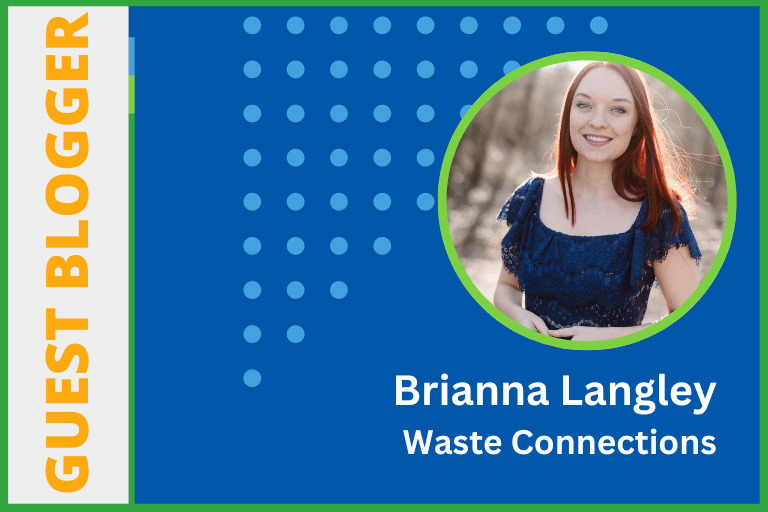Blog
How Waste Tech Transforms Customer Expectations of Service
by Guest Blogger • October 19, 2022

Many people think of the waste and recycling industry as entrenched in tradition. While this may have been true to some extent in the past, times are rapidly changing, and waste tech is partially responsible for this shift, as are customer expectations of services of all kinds, waste management included. As such, today’s leading haulers are shifting focus, placing more emphasis on customer experience in response to generational expectations around sustainability, technology and employment.
The importance of customer expectations and experience to business profitability and scalability is only likely to grow, and waste haulers who want to up their game in the marketplace need to understand what’s driving the need for such enhancements. It should come as no surprise that the rise of the largest-ever generation is at the heart of it all.
1| The Rise of the Millennials
As the largest generation in history, Millennials are making a sizable impact on customer expectations and behavior trends in almost every sector—and the waste and recycling industry is no exception.
Born between 1981 and 1996, Millennials are now aged between 23 and 38, and they are quickly becoming one of the most powerful consumer groups around the world.
The waste and recycling industry is starting to see the rise of the Millennials and their impact on business. This generation is 60 percent more likely to engage with brands that they feel are taking care of their employees and having an overall positive societal impact.
As we all know, this shift also poses another unique challenge for our industry: how to recruit Millennials. As the Baby Boomer generation begins to retire, the skills gap in the sector is widening.
However, this could be viewed as an opportunity rather than an obstacle.
One way to appeal to Millennials is by offering interesting and challenging work. This generation seems to be especially intrigued by the prospect of finding innovative solutions to complex problems. That opportunity, coupled with the potential for career growth and personal development, can make our industry highly attractive —if employers market it correctly.
This goes without saying, but it’s essential to provide competitive compensation and benefits packages. To attract up and coming talent, waste and recycling companies need to provide salaries and benefits that are comparable to other industries. By investing in Millennials, we can move forward with confidence that they will invest in us.
2| Increased Demand for Convenience and Sustainability
Today, customers are 40 percent more likely to spend their money with companies that work hard to mitigate negative effects on the environment. Given the choice between two otherwise-identical service providers, the new paradigm of customer expectations for services means that the more sustainable and transparent option wins out. In our industry, that means transparency in environmental reports, clear sustainability goals, and innovative ways to “recycle”—like converting landfill gas into energy, for example.
As everyone becomes more and more time-strapped, consumers are increasingly looking for ways to make their lives more convenient. This trend is starting to show up in the waste and recycling industry in the form of using mobile apps to set weekly collection reminders and provide recycling education, the rise of online storefronts, and more.
Customers want products that are easy to use and services that have minimal impact on the environment. This is especially true for the up-and-coming demographics, which means this trend is not going anywhere anytime soon, and is far more likely to become more in-demand.
3| The Power of Digital Engagement
In today’s world, digital engagement has become one of the most powerful tools consumers use to make purchase decisions. Purchasing waste and recycling services is no exception. Waste management companies are now starting to focus on their online reputations, and many are going above and beyond by offering multiple avenues of digital communication for their customers.
Chat bots, mobile apps, dynamic website forms, and live agent messaging all play a part in the world of waste and recycling. Consumers want to be able to interact with brands on their terms, and they are more likely to do so through digital channels.
It’s best for public-facing organizations of all kinds to be reachable through all channels that make sense for them, and that these channels are well-managed.
4| Emergence of New Technologies
New waste technologies are changing the way we think about waste and recycling while impacting customer experience. One of the most notable examples is safety-focused technology, such as video telematics and alert systems for fleets. They directly impact pedestrian safety and driver productivity.
That is just one example. From drones to artificial intelligence, tech is making collecting waste and recycling easier. This directly impacts the way our customers think about us— and what they expect. Customer expectations of services say that your organization should be mostly keeping in lockstep with the technological capabilities of the organizations they see around them. Every new development is another possible avenue for your organization to go above and beyond, earning customer loyalty in the process.
5| Importance of Employee Retention
Leading waste and recycling businesses focus on employee retention as a way to directly improve customer satisfaction. With increased training and development opportunities, powered by helpful technology-centered courses, employers are keeping employees engaged while empowering them to provide better service to customers.
The bottom line: Customer expectations of service in the waste and recycling industry are evolving. Competitive haulers understand that technology plays a key role in enhancing experiences for both employees and the customers they serve.
Brianna Langley has been the CX Specialist for Waste Connections since April 2021. Prior to that, she worked in both marketing and PR, respectively. In her current role, she analyzes the various types of interactions customers have with the company and works to make those interactions both delightful for customers and streamlined for employees. She can be reached via email at brianna.langley@wasteconnections.com or on LinkedIn.
References
https://influencermarketinghub.com/Millennial-spending-habits/#toc-9